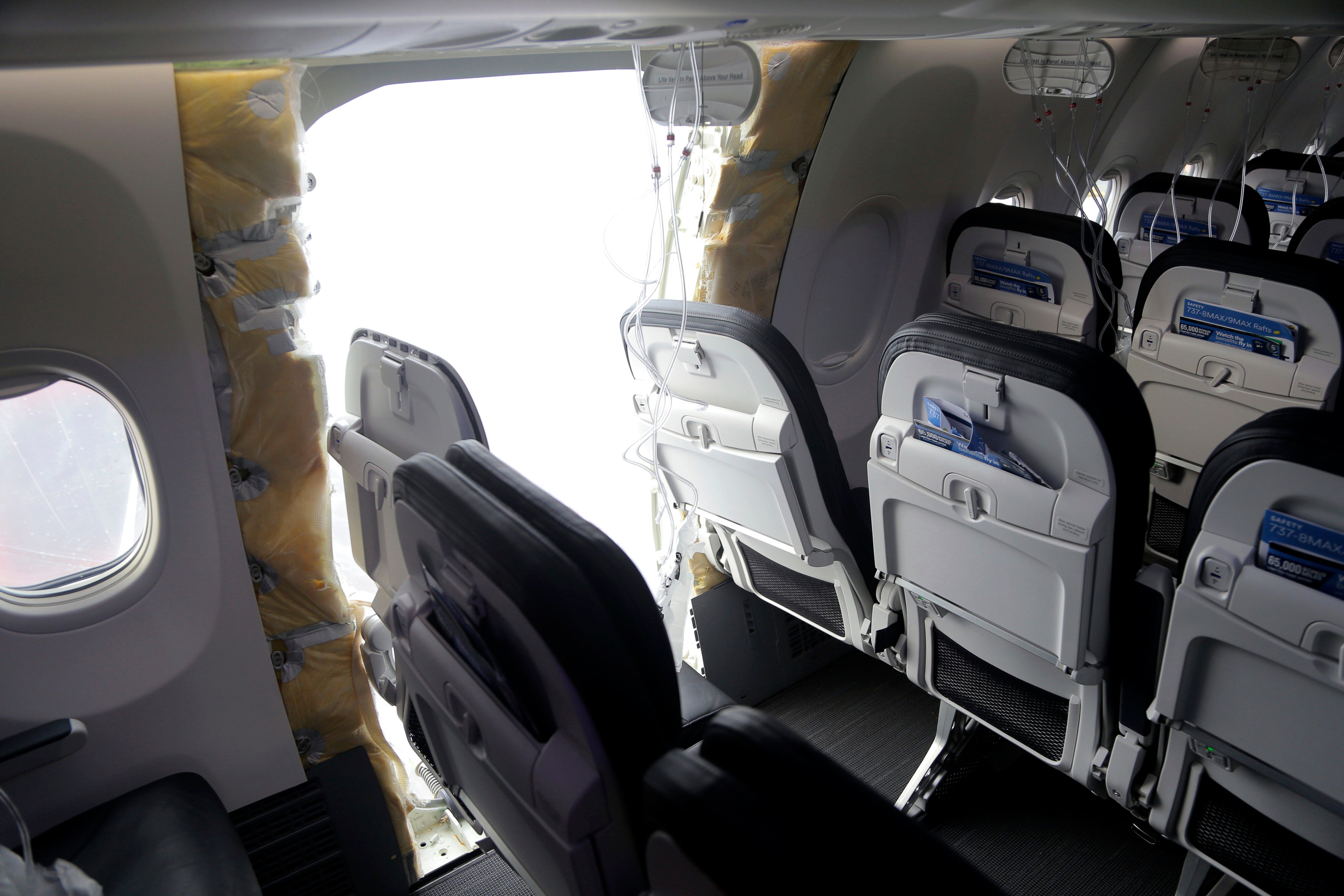Review of Boeing finds safety culture to be concerning
Boeing employees expressed skepticism about the lasting impact of safety policies
The Federal Aviation Administration released the findings of a probe into Boeing’s culture, revealing that the company fostered an environment where workers feared retaliation for reporting safety concerns and a lack of awareness about safety policies.
The report’s release comes on the heels of the grounding of all Boeing 737 Max 9s. The aircraft was involved in a near-catastrophic incident in January in which a door plug — a panel of the fuselage near the rear of the aircraft — blew out, forcing an emergency return to its departure airport.
An expert panel convened in March 2023 to assess Boeing’s safety standards as part of the Aircraft Certification, Safety and Accountability Act, a piece of legislation that requires plane manufacturers and airlines to implement a series of additional safety protocols.
The FAA grounded the planes until they could be thoroughly inspected. Some of the aircraft have recently been cleared to return to the skies.
The panel, which consists of leaders in the aerospace industry, found several issues with the company that raised alarms, including a disconnect between senior management and other companies on safety culture and a lack of awareness regarding how safety complaints were resolved.
Furthermore, the report stated that employees feared retaliation if they made a formal complaint regarding safety to their superiors and were sceptical of safety policies being properly implemented.
In addition, the panel could not determine if safety concerns reported directly to the management chain were resolved in a systematic manner.

In response to the report’s findings, Boeing said, “We transparently supported the panel’s review and appreciate their work.
“We’ve taken important steps to foster a safety culture that empowers and encourages all employees to share their voice. But there is more work to do.
“We will carefully review the panel’s assessment and learn from their findings, as we continue our comprehensive efforts to improve our safety and quality programs.”
The legislation did not require the panel to examine any specific incidents or provide recommendations regarding Boeing accidents. However, the report stated “On several occasions during the expert panel’s activities, serious quality issues with Boeing products became public.
“These quality issues amplified the expert panel’s concerns that the safety related messages or behaviours are not being implemented across the entire Boeing population”.
Under the legislation, the company has to create an action plan within six months of the report’s release and find a way to implement its recommendations.
Prior to the Alaska Airlines incident, Boeing had a series of incidents involving their 737 Max aircraft.
In 2018, a Boeing Max 8 jet used by Indonesia-based Lion Air crashed, resulting in the deaths of 189 people. A year later, the same model was used in a flight that killed 157 people.
After the Alaska Airlines incident earlier this year, Boeing CEO Dave Calhoun said the manufacturer would move forward with the incident with complete transparency and is “acknowledging our mistake”.
He added: “Everything matters. Every detail matters”.
Join our commenting forum
Join thought-provoking conversations, follow other Independent readers and see their replies
Comments
Bookmark popover
Removed from bookmarks